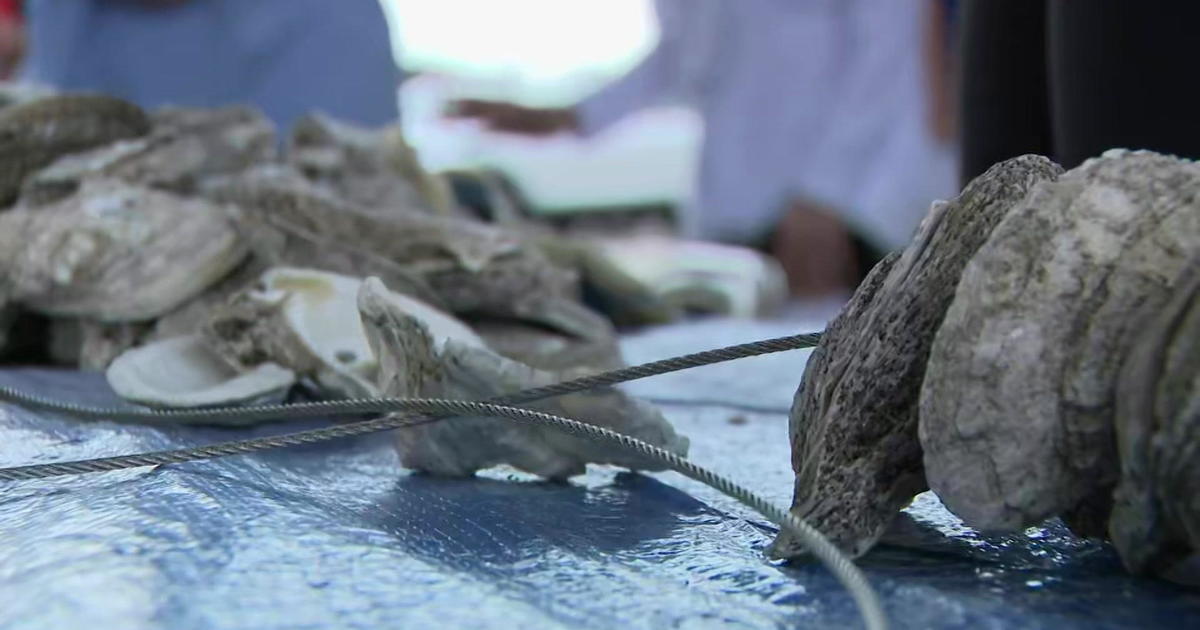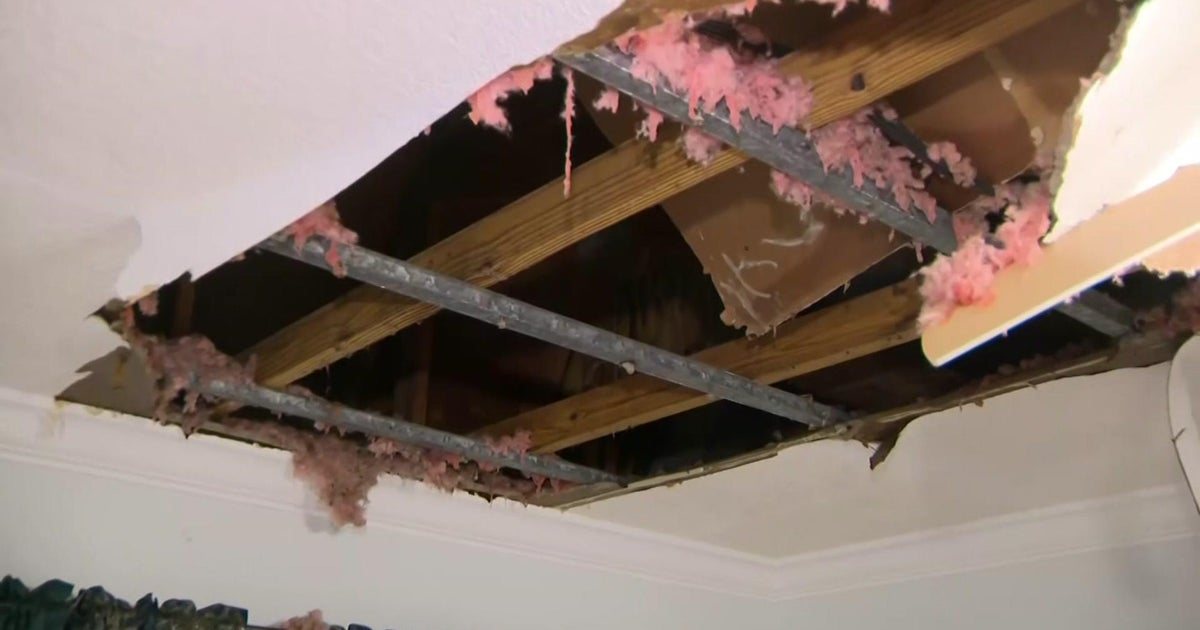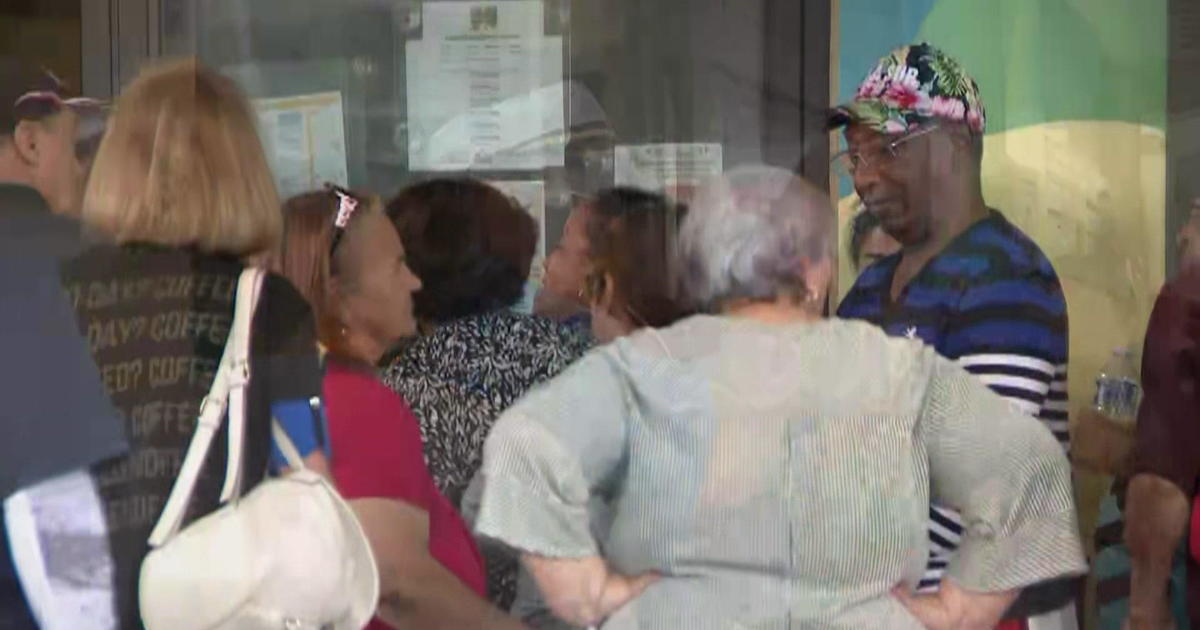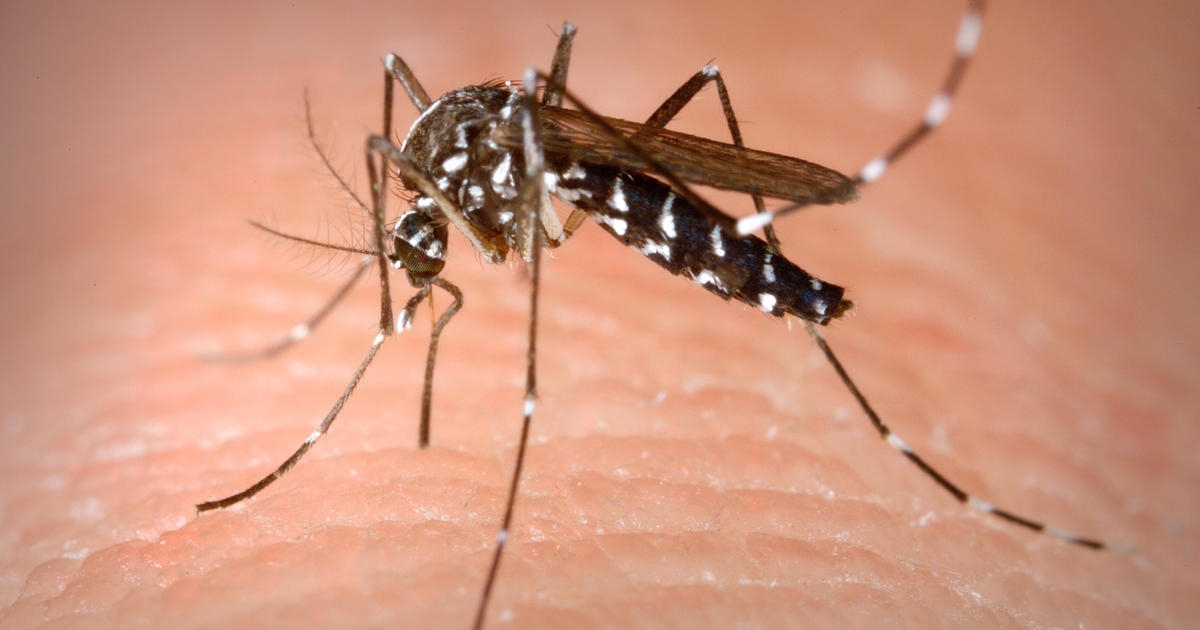Desperate Family Turns To Controversial Stem Cell Treatment To Help Toddler
MIAMI (CBS4) - When Vicky Bonilla looks into her 3-year-old son Andrew's eyes, she sees his desire to communicate like he used to.
"The neurologist and therapists tell me that he is more aware than what he is able to express and at times he gets frustrated because he cannot express what he wants," Vicky told CBS4's Natalia Zea.
When his older siblings play peekaboo with him they see glimmers of who Andrew used to be.
Andrew was born with digestive issues, but functioned like any other toddler.
"He would walk, talk, play like a regular little boy did," said Bonilla through tears.
And he was his dad Tito Bonilla's sidekick.
"He would do everything with me. He knew everybody's names. He knew mommy, pappi, he knew the color of your car. He knew everything. It was just amazing, he was so smart," said Tito.
Everything changed in January of 2012. At 2 years old, Andrew went into an emergency room, one of many visits for his digestive problems. But this time, he went into septic shock. Infection took over his body and he flat lined in front of his mom.
"I had him on his side, I had his hand on his chest and I felt his heart stop, that denial of 'No, this is not happening, this is really not happening'," Vicky recalled.
Medical staff revived Andrew, but the lack of oxygen caused brain damage and left him severely impaired.
"Now he doesn't walk. He doesn't talk. I have to tube feed him. I'm grateful that I have him, don't get me wrong, but it's hard. As a mom you're used to taking that pain away. I'm so limited to what I can do for him," said Vicky who quit her job to care for Andrew full time.
She dedicated her time searching for ways to improve his condition. During visits to Andrew's speech and physical therapy sessions she met other parents, whose disabled children benefited from stem cell treatments.
She did some research and got a hold of their doctor, Burton Feinerman, a Tampa-based stem cell expert who has worked with families like the Bonillas for more than a decade. Dr. Feinerman explained to the family that with the treatment Andrew's condition may not entirely improve.
"I told them the prospects of what might happen with him. With someone with generalized brain damage one has to be cautious about being too optimistic but certainly we know that we can help him," Dr. Feinerman told Zea.
The treatment Dr. Feinerman is planning for Andrew, uses stem cells taken from a US-based donor's umbilical cord blood. The doctors alter the cells so Andrew's body won't reject them and then inject them into his spinal canal, essentially hoping to give Andrew's central nervous system and brain cells a boost while he continues therapy.
"It's a transplant, so the first thing we hope is that they migrate to the proper areas of damage. Introducing new healthy neurons into the brain, you're able to repair those damaged areas," explained Dr. Feinerman.
Tito is hopeful the treatment will work.
"We just have faith that this treatment will help him. Bring him back at least."
Vicky says it's worth a shot.
"It could be we get a lot of him back, it could be we don't get a lot of him back. We may not get any of him back…but it's the only option we have out there to help him."
So why is the treatment controversial? Because it's illegal in the United States.
Dr. Feinerman says it's against the law to use donor adult stem cells, and to alter them, except in specific approved clinical trials. Dr. Feinerman says the laws are the result of limitations placed on an unrelated group of stem cells-those that come from a human embryo which are destroyed after stem cells are extracted.
"Unfortunately the stigma of embryonic stem cells still remains and it's unfortunate because no one is using embryonic stem cells to treat patients," he said.
Republican Florida State Senator Anitere Flores presented and passed a bill limiting the research and use of embryonic stem cells in Florida.
"(Embryonic stem cells) are very problematic for some, for people like myself who believe that life begins at conception and it's very controversial," she said.
But even despite limiting stem cell research, she says she fully supports using adult stem cells that would help kids like Andrew.
"Government should not be in the way of stem cell research and treatments that have worked that don't delve into the pro-life pro-choice issue."
But until the laws are changed, families like the Bonillas are in limbo, and taking desperate measures, flying all over the world for the stem cell treatments to countries that do not outlaw them.
The Bonillas are currently trying to raise $35,000 to fly to Peru, where Dr. Feinerman will oversee the adult stem cell treatment, performed by his Peruvian medical partner. It's a procedure that the U.S. Food and Drug Administration has not examined. Zea asked Dr. Feinerman if he had ethical concerns about encouraging treatments that are not FDA approved.
"I don't think I'm doing anything unethical, immoral or irreligious. I'm helping a child that has an unfortunate serious medical problem and is being denied. I think that's immoral, I think that's unethical," he responded.
The Bonillas prefer not to fly to South America for this unregulated, expensive and controversial treatment but they say they have no choice.
"Maybe a lot of people would tap me on the head and say shame on you for doing something like that. But I think a lot of those people are not in my shoes or in the shoes of parents like us," said Vicky. "I would give anything just to get him to walk again, or just to be able to move around at his desire."
A wish that seems so simple, but is so complicated to fulfill.
If you would like to help Andrew get that stem cell treatment Click Here for a link to the family's donation page.



